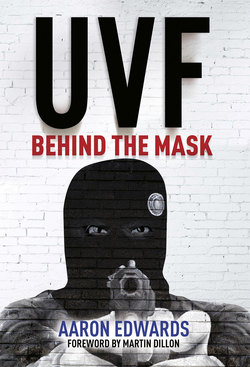Читать книгу UVF - Aaron Edwards - Страница 9
На сайте Литреса книга снята с продажи.
ОглавлениеAUTHOR’S NOTE
Given the nature of the events described in this book it has been necessary for ethical, legal and security reasons to anonymise several of the interviewees who have assisted me. The major armed conflict in Northern Ireland may have subsided but the threat of violence has not gone away. Various journalists and academics – and those who have talked to them – have discovered, to their personal and professional cost, the consequences of engaging in research on paramilitary violence. By their very nature, the acts committed by these groups were illegal, whether that is accepted in some quarters, or not. And in liberal democracies, like the United Kingdom, law enforcement agencies have a duty to investigate whenever there are reasonable grounds for suspecting that a crime has been committed. As a series of proscribed acts, terrorism remains unlawful. With no statute of limitations on murder, and no mechanism for ‘dealing with the past’, people involved in these acts are still liable to be prosecuted in ongoing or future investigations.
I would like to thank those journalists, academics, police officers, solicitors and other legal professionals who took the time to explain the law to me and to discuss the many pitfalls of researching political violence in Northern Ireland. As I have consistently said in public, it is vital that when historians interview eyewitnesses – and perhaps even participants – to the events under scrutiny, we ensure we first do no harm. To that end, I made it clear to my interviewees that they must not incriminate themselves or others (unless allegations made were against those now deceased) in specified unlawful acts. My aim, however, is to narrate the most accurate story possible despite these limitations.
In a book of this nature and size, some minor inaccuracies have inevitably crept into the text and I would like to thank those who have pointed these out to me. I wish to apology for any distress or inconvenience caused.
